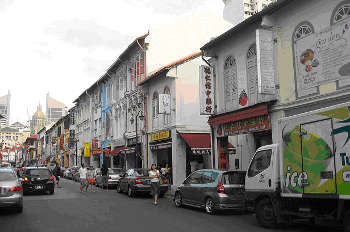According to a House of Commons select committee report, England is ‘litter-ridden’ when compared to other nations in Europe, North America, and Asia.
We have a serious problem with throwing away our waste in public, with cleaning items like fast food packaging, chewing gum, and cigarette butts running up an annual bill of between £717m–£850m a year, which the taxpayer has to foot.
This issue can be a menace for our transport infrastructure too. Dumped rubbish causes an obstruction for both pedestrians on the pavement and vehicles on the road, and any subsequent clean-up operations can cause further disruptions. Littering and fly-tipping around main thoroughfares can also pose a threat to public safety.
So, just what is it that other countries are doing that the UK isn’t? A good place to start looking are the places around the world that are famous for their spotless streets and roads, which often have their own individual methods of tackling public littering.
Calgary has been top of global quality of life and cleanliness rankings for the past few years. One of the aspects it is praised for is the pristine conditions of its streets — partly down to its ‘Spring Clean-up’, a comprehensive street-sweeping programme that sees over 15,000 km of paved roads cleaned from April to June.
Along with the Government investment that makes the scheme possible, a fantastic awareness campaign is in place, informing residents when teams need access to their street. This allows for a complete and deep cleansing of the street surface.

On a little street in Singapore
The city-state of Singapore takes a much more authoritarian stance towards littering, with penalties of SGD $1,000 (around £600) if you get caught by one of the thousands of plainclothes officers enforcing the rules.
They’ve also taken the famous preventative step of banning imported chewing gum in an effort to severely cut spending on cleaning up pieces trodden into the street — the UK has an annual bill of £60m for gum clean up, according to the Local Government Association.
In Rwanda, a country that the World Monetary Fund ranks in 139th place in the world for GDP, they maintain cleanliness through community action alone. A national mindset called ‘umuganda’ is enshrined in law, roughly translating as ‘coming together in common purpose to achieve an outcome’.
Each month, the country grinds to a halt for three hours as citizens come together to tidy up their villages, towns, and cities. Everyone helps, even the president, and an important lesson about causing a mess in the first place is also imparted — after all, who would throw something away if they just had to clean it up themselves later?
Each of these three places takes a different stance on cleaning up litter from their streets and roads, but each of them has a high level of success. Whether it’s the Government programmes of Calgary, the stricter laws of Singapore, or the community-led approach on display in Rwanda, the UK should look at each location as an example of what can be achieved. Even if we don’t copy exactly what they are doing, it’s clear that something needs to change if we are to lose our reputation as an untidy nation.
Barry Crackett is a design expert at Brushtec, a manufacturer of brushes and brushware for municipal, industrial, and agricultural applications.
Register now for full access
Register just once to get unrestricted, real-time coverage of the issues and challenges facing UK transport and highways engineers.
Full website content includes the latest news, exclusive commentary from leading industry figures and detailed topical analysis of the highways, transportation, environment and place-shaping sectors.
Use the link below to register your details for full, free access.
Already a registered? Login